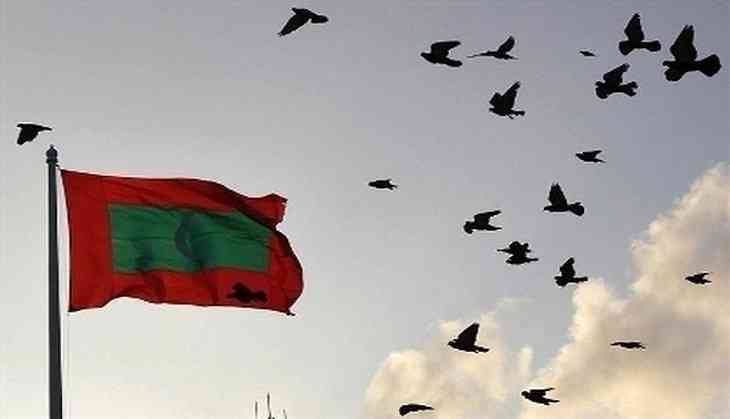
With Maldives inching closer to polls, airing content criticising the incumbent government helmed by President Yameen Abdul Gayoom is costing the broadcasters of the nation, says South Asia director of Human Rights Watch, Meenakshi Ganguly.
Underlining the hefty fined slapped by the Maldives Broadcasting Commission (MBC) on a Private TV channel Raajje TV, for airing content that was allegedly defamatory of the president and "a threat to national security", Ganguly quotes the Raajje's operations chief, Hussain Fiyaz, who says "The fines are certainly a political decision made by a commission that is fully under the control of the government."
Rajje TV has already been fined four times since 2016 by the MBC for allegedly broadcasting anti-government content.
This has cost the station nearly four million rufiyaa - over USD 250,000.
On August 8, MBC levied a fine of two million rufiyaa (USD 129,807) on Raajje TV, for comments made by an opposition lawmaker during live coverage of a demonstration in March.
The article further elucidates, the ordeal of the private broadcaster which launched a public appeal to help pay the initial penalties, going door-to-door asking for donations.
The fines are imposed under Maldives' Anti-Defamation Act of 2016, according to which the media outlets are coerced to pay their fines within 30 days, regardless of whether there has been time to hear any appeal.
Although Raajje TV has paid its latest fine, more may come. Fiyaz believes that the government will make further attempts to obstruct the station's coverage before election day, causing Raaije TV to rely on the kindness of strangers.
"With the elections just around the corner, people don't want to let the government deter us from doing our work," Ganguly quests Fiyaz as saying.
Maldives will go for poll on September 23.
Ganguly in the article further asserts that the Human Rights Watch has documented the Maldives government's use of "decrees and vaguely worded laws to silence dissent and to intimidate and imprison critics."
She also highlights that "religious extremists and criminal gangs - including many that enjoy political protection - have assaulted and at times murdered outspoken critics."
-ANI


